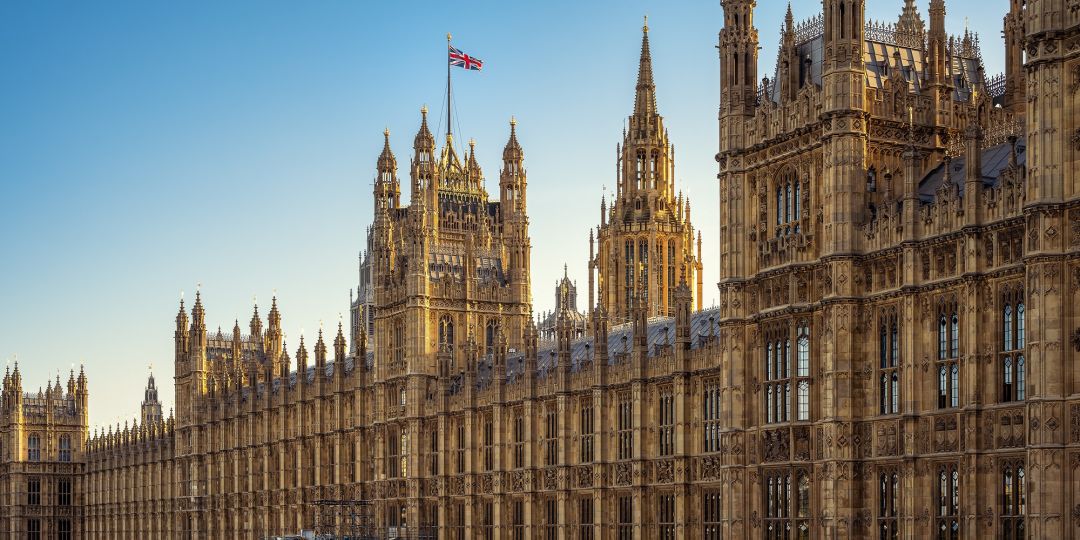
Matthew Henderson
Associate Director, Residential Research


Associate Director, Residential Research
So, what could a Labour Government mean for the UK’s housing market? We’ve pored over its manifesto to shed light on some of the party’s key commitments.
Increase stamp duty for non-UK residents buying residential property by 1%
Labour has pledged to raise stamp duty for overseas buyers. It comes after the party unveiled the proposal at its conference last year. Under the current stamp duty system, non-UK Gov residents already pay a 2% surcharge when they purchase a residential property.
Guy Robinson, Head of Residential, explains: “Buyers are typically more cautious around a General Election and are naturally wary of how the outcome might affect them. That said, with a Labour victory widely predicted in recent weeks the market has remained active in anticipation of a cut to the base rate in the summer.
James Gow, Head of London sales, adds: “Throughout June, when political campaigning was in full swing, we actually saw a surge in activity and exchanged 12% more sales than we did in May. These buyers know that as interest rates comes down, demand will grow and with it place upward pressure on prices. We expect this momentum to continue into the second half of this year as the dust settles on the General Election and the new Government beds in.”
Abolish non-dom status
Labour plans to scrap tax rules for non-domiciled people (‘non-doms’) and replace them with “a modern scheme for people genuinely in the country for a short period”.
It has widely reported in the media that Labour will go further than the Conservatives plans to get rid of non-dom status by removing the 50% discount on taxable foreign income during a transitional period. This means that non-doms could face full UK tax rates on their foreign income from the get-go.
End the use of offshore trusts to avoid inheritance tax
Labour wants to stop the use of offshore trusts to circumvent inheritance tax (IHT) “so that everyone who makes their home here in the UK pays their taxes here”.
James Gow continued: “Proposals to scrap the non-dom tax regime and end the use of offshore trusts to avoid IHT may deter some buyers in the prime and super-markets, but they won’t make a material difference. These markets remain highly desirable, whether it’s a London townhouse or a country estate. This is especially true of London which retains its status as a global capital city. It will continue to attract buyers for its arts, history, culture, education as well as being a major centre for business, for decades to come.”
Scrap VAT exemption and business rates relief for private schools
Labour plans to end the 20% VAT exemption and 80% business rates relief for private schools. It is anticipated that many schools will pass some or all of this onto parents through higher school fees. It is anticipated that the extra pressure parents will feel from higher school fees could heighten competition for homes near highly-rated state schools.
Kate Eales, Deputy Head of Residential, comments: “If these costs are handed down to parents, we anticipate two trends will emerge. First, it will likely fuel buyer demand for homes near high achieving grammar and state schools further. This in turn could push house price premiums higher in certain catchment areas. Meanwhile some parents who remain committed to a private education for their children may look to unlock equity from their homes to pay the higher fees. This could prompt some families to downsize or relocate to a more affordable area. There is some evidence this is starting to happen with our regional offices bringing 8% more properties to market compared to June last year.”
Labour wants to "get Britain building again". It has pledged to reform planning rules and build 1.5 million homes over the next parliament. It said it would build new towns which, alongside urban extensions and regeneration projects, would form part of a series of large-scale new communities across England.
Charlotte Moxon, Head of Regional New Homes, says: “Labour has outlined a number of planning ideas, but the devil is in the detail. Most governments of the last two decades have made bold commitments to house building but delivery always falls short of the promised targets. Unlike its predecessors, this Government has the mandate and political will to bring through game-changing planning reform to drive its house building ambitions. However, it should be noted this is a long-term policy. The cost and timeframe of building new towns would require Labour to win a second term to deliver on this promise.”
Labour has committed to giving first-time buyers the first chance to buy homes in new housing developments before they’re sold overseas. It also wants to bring in a permanent mortgage guarantee scheme to support aspiring homeowners with smaller deposits.
The party’s aspiration to help first-time buyers is commendable. The details and implementation of a mortgage guarantee scheme will need careful planning though. Otherwise, there’s a risk that the scheme could inflate house prices, a criticism that has been levelled at Help to Buy.
Anna Ambrose, Head of Lettings, explains: “Landlords have been expecting an overhaul of the private rental sector for some time. The Conservatives tried to achieve this with the Renters (Reform) Bill but it was dropped ahead of the General Election. Labour has suggested that it would continue in a similar vein with plans to reform the sector.“We expect the rental market to continue on a broadly similar trajectory. Rental demand and supply levels have begun to level out recently, slowing the pace of rental growth. Landlords remain well-placed to set prices, but they do need to take local market dynamics into account.”
How could a new Labour Government affect sentiment?
Labour's majority in parliament should allow its government to follow through on its pledges. This could bring some certainty to the housing market and help to build on a promising second quarter in which we have seen exchanges and offers accepted up over 30% against first quarter of this year. The market will be further encouraged if the new Government acts promptly.
Matt Henderson, Residential Research, says: “Regardless of the policy changes that lie ahead, the most important factor for the wider housing market in the short term is interest rates – and there is cause for optimism here. Inflation hit the 2% target for the first time in three years in May and BNP Paribas is still forecasting the Bank of England will cut the base rate in August, with subsequent cuts thereafter. High street banks are already responding, and many have reduced headline mortgage rates in recent weeks.
“As buyer appetite increases, the supply of homes for sale climbs and sales figures rise, our outlook for property prices remain unchanged. We forecast values in prime central London, and more widely across the UK, to increase 10% to 15% over the five years to 2028. And we forecast rents in prime central London to climb 10% to 15% over the same time scale.”